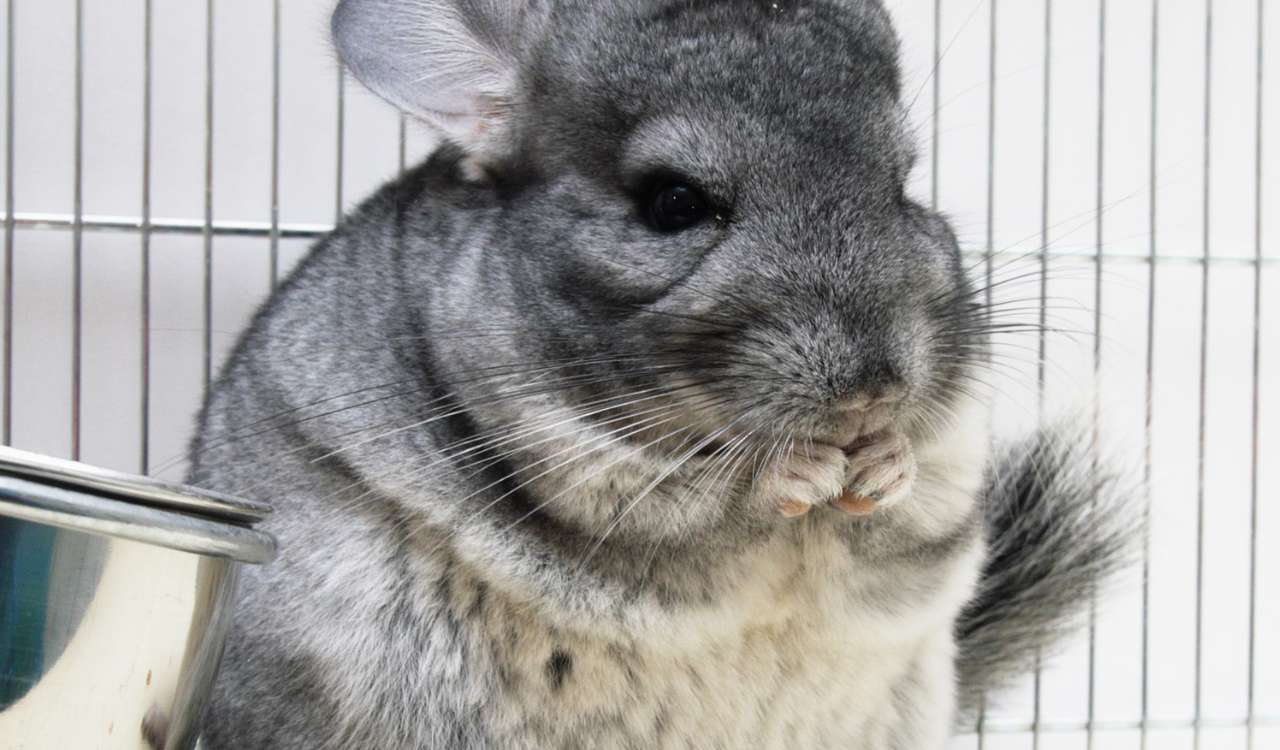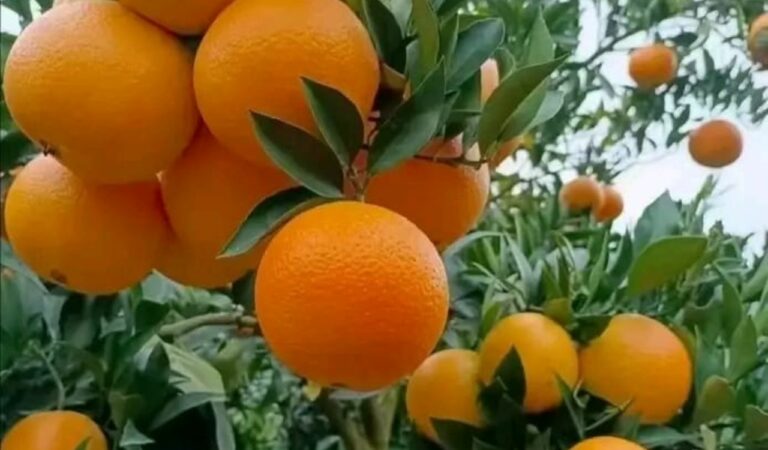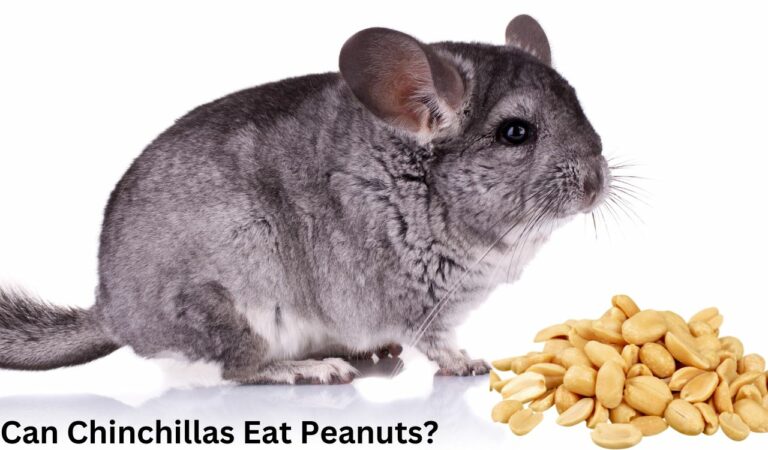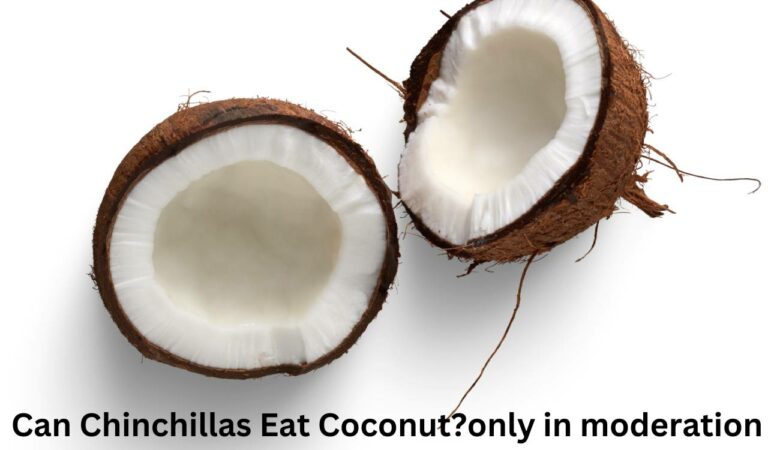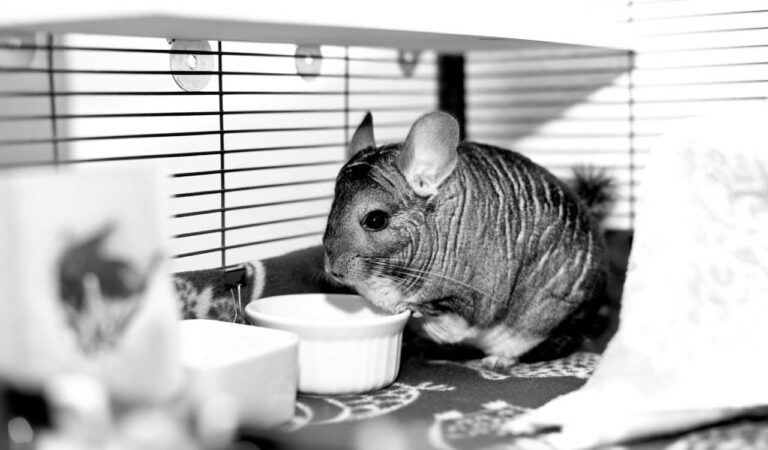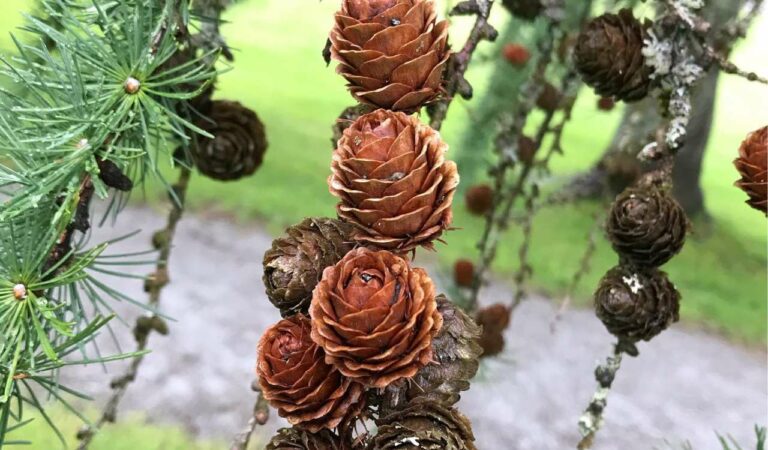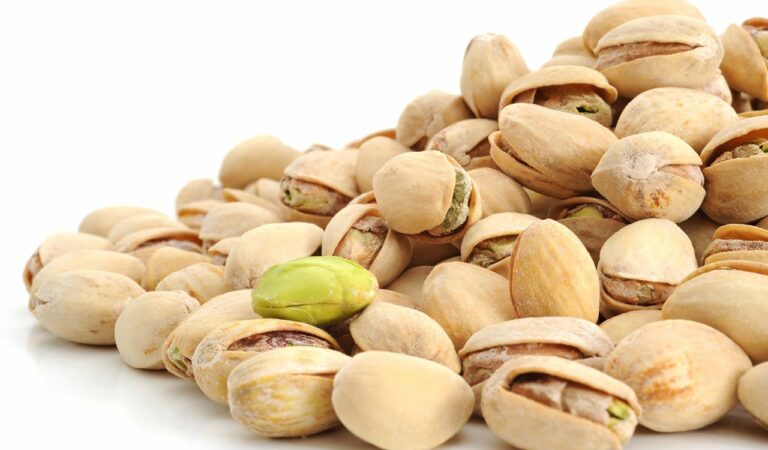Can Chinchillas Eat Plums? (Are They Safe?)
Chinchillas are plant-eating rodents that need a high-fiber diet low in fat and sugar to stay healthy. Their diet should include approximately 30% fiber, 4% sugar, and up to 3.5% fat. So, besides hay, these pet rodents also eat grasses, twigs, and leaves. You can also feed them fruits and vegetables to supplement their primary diet.
However, chinchillas cannot eat all types of fruits, such as lemons, watermelons, oranges, and pineapples. This is because of their delicate digestive system. But can chinchillas eat plums?
Yes. Chinchillas can eat plums but not pits. Plums are rich in many essential nutrients, such as dietary fiber, carbohydrates, potassium, and phosphorus. However, because of their high sugar and water content, chinchillas can only eat plums occasionally and in small amounts.
So, are there any benefits or risks of chinchillas eating plums? Keep reading to learn how to feed these fruits to chinchillas, and what fruits are safe for them.
Can Chinchillas Have Plums?
Yes. Plums are not toxic to chinchillas. Therefore, chinchillas can eat them but only as occasional treats. Plums are a good source of many essential nutrients and minerals, including vitamins A and C, calcium, and fiber. Below you can find a summary of the nutritional value of fresh and dried plums.
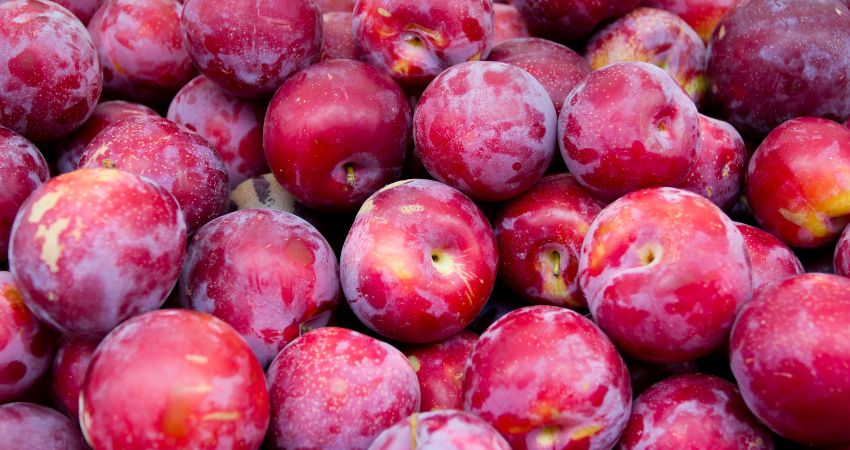
| Type of Nutrients | Nutritional Value Per 100 Grams (Fresh) | Nutritional Value Per 100 Grams (Dried/Prunes) |
| Water | 87.2 g | 30.9 g |
| Protein | 0.7 g | 2.18 g |
| Fat | 0.28 g | 0.38 g |
| Carbohydrates | 11.4 g | 63.9 g |
| Dietary Fiber | 1.4 g | 7.1 g |
| Sugars | 9.92 g | 38.1 g |
| Vitamin C | 9.5 mg | 0.6 mg |
| Potassium | 157 mg | 732 mg |
| Calcium | 6 mg | 43 mg |
| Phosphorus | 16 mg | 69 mg |
However, like most fruits, plums are high in sugar and water content. Therefore, your chinchilla may face stomach problems from eating too many plums. Chinchilla’s digestive system is extremely sensitive. For this reason, your pet chinchilla must eat the plums in moderation.
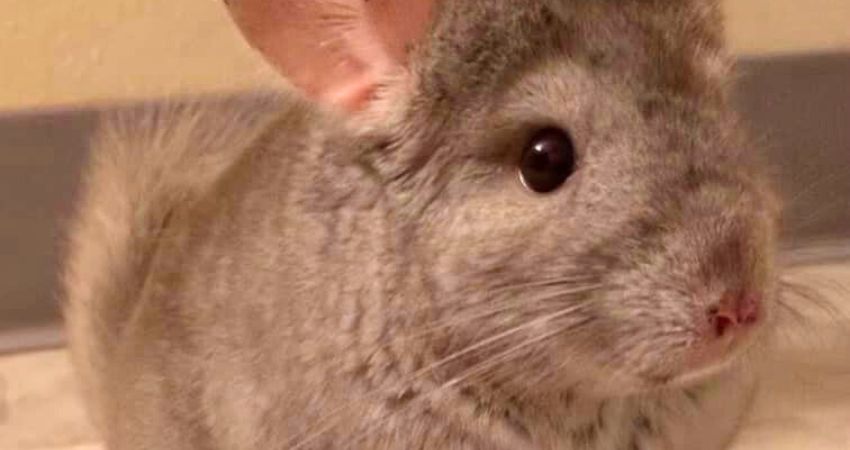
It is advisable to feed fresh plums to your chinchilla instead of dried ones. This is because when dried, plums contain more sugar content and potassium, which is not good for chinchillas.
Do Chinchillas Like Plums?
Chinchillas like sweetened treats, and they like to beg for them. So, since plums have a sweet taste, they like them too.
Health Benefits of Chinchillas Eating Plums
Plums offer several benefits, as long as your chinchillas eat them in moderation because of their high sugar content. Let’s take a look at some of the key benefits here:
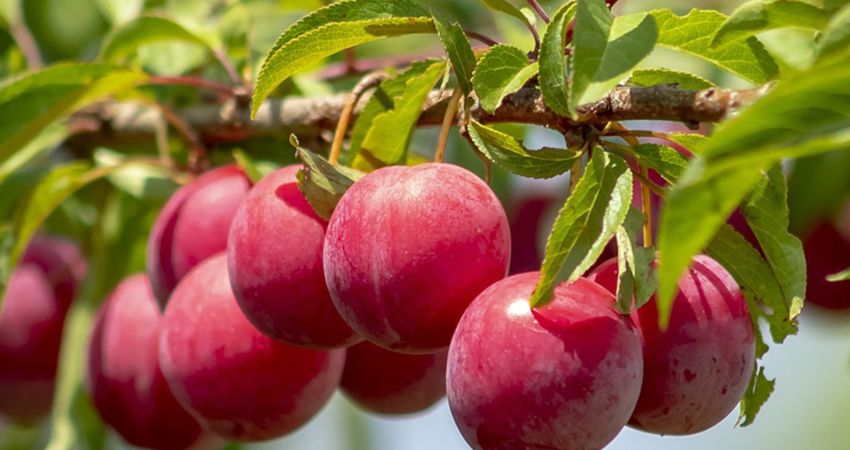
High in Carbohydrates
Dried plums contain more carbohydrates than fresh ones. Carbohydrates are an excellent energy source for chinchillas, helping support their bodily functions and physical activities.
Good Source of Fiber
Chinchillas require a diet rich in fiber. Fiber helps maintain a balanced bacterial flora in their gut, ensuring better digestion. It also promotes dental health in these rodents, preventing the teeth from overgrowing through constant chewing.
Promotes Overall Health
Dried plums are rich in potassium. This mineral performs several tasks, such as supporting muscle activity, nerve function, and metabolism. It also helps maintain the chinchilla’s healthy cardiovascular system, bones, and kidneys.
Rich in Calcium and Phosphorus
These are essential minerals for chinchillas as they help maintain healthy bones and teeth. The two minerals also help maintain normal metabolic, tissue, and cell function.
Antioxidant Properties
The active antioxidants in fresh and dried plums or prunes are anthocyanins, a type of polyphenol. These antioxidants help reduce the risk of various diseases in chinchillas and protect against inflammation by neutralizing free radicals.
How Do You Feed Plums To Chinchillas
You should feed your chinchillas one to two small slices of plums about 1-3 times a week at most. Below is how to do it:
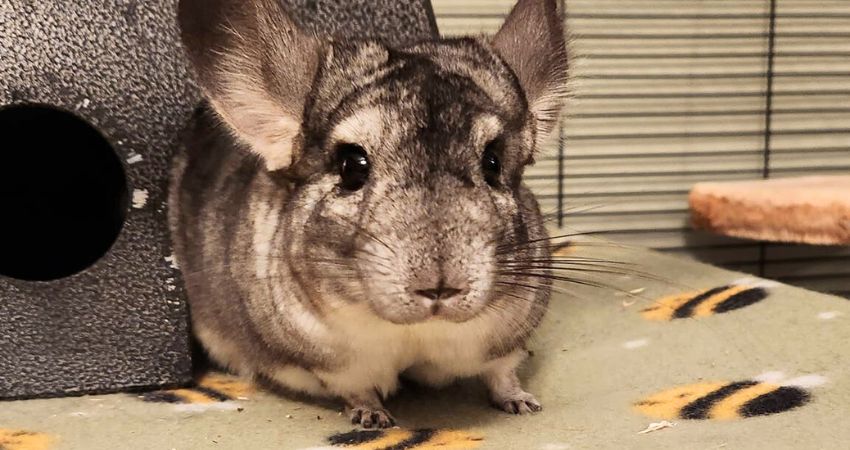
Step 1: Choose one fresh plum and wash it thoroughly with clean water.
Step 2: Cut the plum into small, bite-sized pieces to avoid choking.
Step 3: Remove the pits and discard them.
Step 4: Give 1-2 pieces to your chinchillas to eat.
Step 5: Monitor your pet rodent’s behavior and health and cease feeding them if you observe any signs of digestive upset.
Health Risks of Chinchillas Overfeeding Plums
If your chinchillas eat too many plums, they may develop a range of health conditions. These problems are due to the high sugar, water, and phosphorus content the fruits contain. The conditions include:
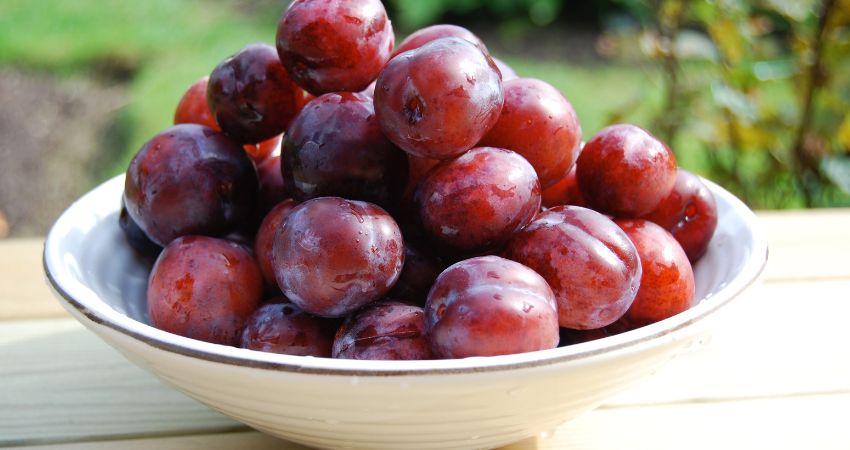
- Diarrhea
- Bloating
- Constipation
- Ulcers
- Tooth disorders
Tooth decay occurs due to too much phosphorus in dried plums, leading to calcium deficiency. Another common risk of chinchillas eating plums is the pits. Plum pits contain hydrogen cyanide, which can be toxic to your pet rodent and a choking hazard.
Apart from gastric irritation, cyanide may also cause respiratory distress in chinchillas and eventual death. The good news is that a single plum pit is not enough to cause poisoning.
Can Chinchillas Eat Plum Pits?
The answer is no. Plum pits are not safe for chinchillas to eat. The pits contain toxic cyanide compounds. Cyanide poisoning impedes oxygen utilization by the chinchilla’s body cells. Consequently, this leads to respiratory distress. Plum pits are more dangerous if your pet rodent chews many of them.
What Fruits Are Not Safe for Chinchillas to Eat?
Generally, fruits are not safe for chinchillas to eat because of their high sugar content. However, some fruits can cause more harm to your pet rodent even when you feed them in moderation and occasionally. These include:
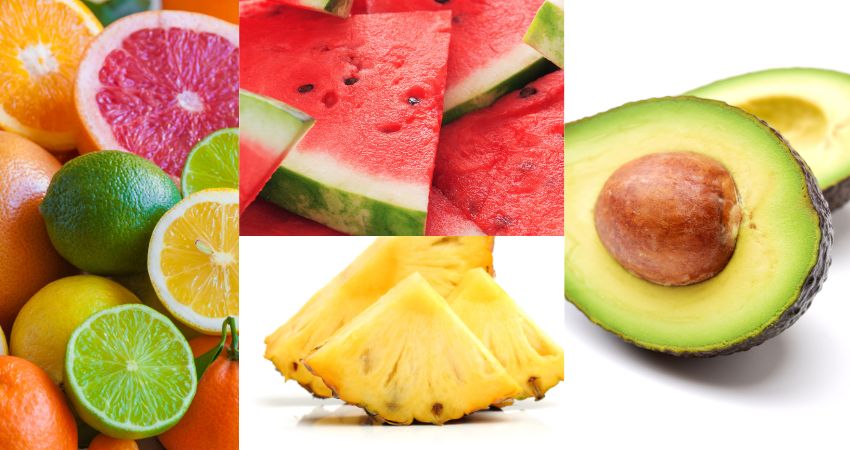
Citrus Fruits
Your chinchillas should not eat citrus fruits, such as limes, lemons, grapefruits, and oranges. These fruits contain peak amounts of acid that may cause digestive upset in these pet rodents.
Avocados
This fruit, including its seeds, skin, pits, and leaves, contains a fungicide toxin known as persin. So, chinchillas may suffer digestive tract issues and diarrhea from eating avocados.
Water-Based Fruits
Additionally, your chinchillas should not eat watery fruits like watermelons and pineapples. These fruits contain a high water content of 86% to 92%, yet a chinchilla’s diet needs to be low in moisture content. As such, your pet rodents may suffer from digestive distress from eating the fruits. So then, can chinchillas eat grapes?
The answer is yes. Although grapes are water-based fruits, chinchillas can eat them in small amounts and dry instead of fresh.
Can chinchillas eat dried or canned plums?
Yes, chinchillas can eat dried or canned plums periodically as treats. However, since they have higher sugar levels than fresh plums, you should avoid feeding them to your chin.
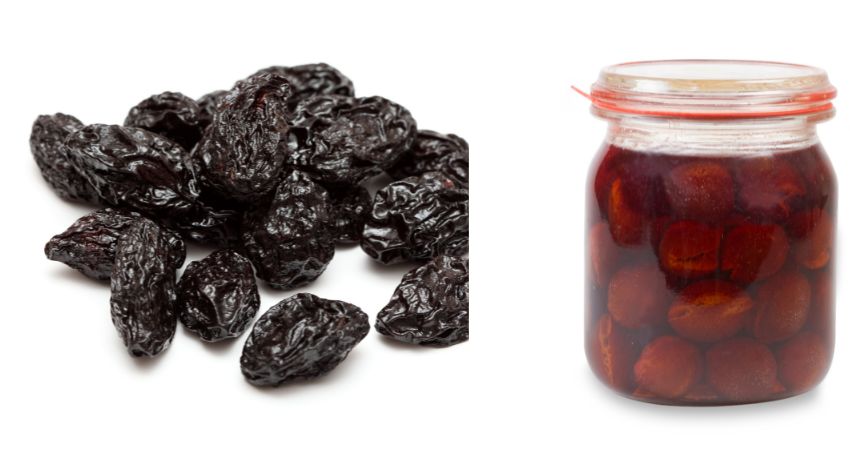
As for the canned plums, they should only eat them if they don’t contain added sugar and preservatives. Dried, plums are referred to as prunes. Like plums, prunes are high in fiber, carbohydrates, vitamins, and numerous minerals.
Are plums safe for chinchillas, and can chinchillas eat plum skin?
Plums are only safe for pet rodents when they eat them sparingly and in small quantities. As for the plum skin, your chins can eat it, but you have to wash it thoroughly with clean water.
Can chinchillas eat plum pits or seeds?
The answer is no. Plum pits or seeds are not safe for chinchillas to eat. They contain toxic cyanide compounds. Cyanide poisoning impedes oxygen utilization by the chinchilla’s body cells. Consequently, this leads to respiratory distress. However, the plum pits are more dangerous if your pet rodent chews many of them.
In the End
Although chinchillas can eat plums, these rodents should not eat plum pits or fresh plums. This is because fresh plums are high in water content. However, like with other fruits, chinchillas should only eat plums occasionally and in small quantities. When eaten in moderation, these fruits offer several benefits to your pet rodent, like improved gut health and immunity.
But because of plums’ high sugar, water, and phosphorus contents, there are also risks of chinchillas eating plums. That said, you should never let your pet rodents eat fruits like lemons and oranges because of their high acidic content. Also, avocados and water-based fruits such as watermelons are not good for chinchillas.
